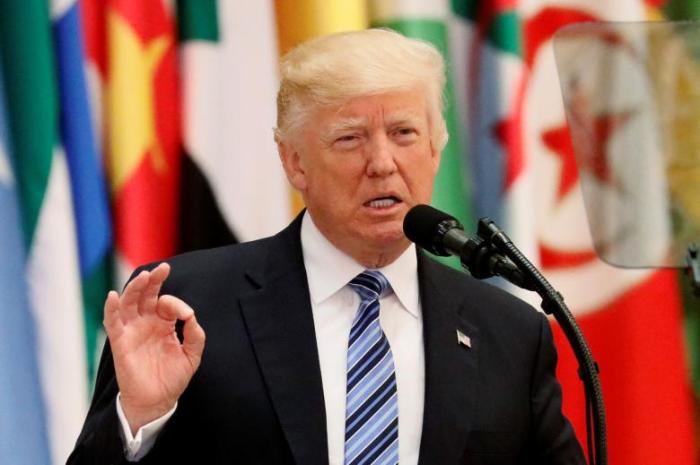Christian Leaders Praise Trump's Saudi Arabia Speech; Tillerson Says President's Views on Islam Will 'Evolve'

Update Appended
President Donald Trump's views on Islam "continue to evolve," according to Secretary of State Rex Tillerson, in the wake of the president's address in Riyadh, Saudi Arabia, which is earning him praise among notable Christian figures.
Trump's speech is garnering significant attention given that this was his first address on an international trip but especially because of its theological overtones while expressing his vision for U.S.-Muslim relations.
While more nuanced than many of his pronouncements about Islam on the campaign trail, his speech on Sunday nevertheless decried "Islamist extremism," challenging leaders from more than 50 Muslim nations gathered for the summit in Saudi Arabia to confront the "vile creed" and "craven ideology" of terrorism. Nations of the Middle East are full of potential but the plague of extremism holds them back, he said.
"Terrorists do not worship God, they worship death," Trump said, framing the issue as "a battle between good and evil."
Muslim-majority countries must drive out terrorists from their communities, their places of worship, their holy lands, and even off the earth, he added. And religious leaders must make clear to their faith's adherents that "barbarism will deliver you no glory — piety to evil will bring you no dignity. If you choose the path of terror, your life will be empty, your life will be brief, and your soul will be condemned."
Such an explicit theological judgment struck Al Mohler, president of The Southern Baptist Theological Seminary, as highly significant.
Trump's words were "over against many of the preachers of Islamist theology and ideology, who promise those who become martyrs for the faith and terrorist acts that they will immediately go to heaven and, as you recall in the 9/11 events, they're to be greeted by a harem of virgins," Mohler noted Monday on his daily podcast called "The Briefing."
That the president chose to use the term "Islamist extremism" several times is no minor detail, he added.
"Islamist implies the fact that the driving ideological energy behind the terrorism is not actually the religion of Islam, that is to say theology, but rather a political ideology known as Islamism, thus Islamist."
White House spokespersons explained that Trump was tired from traveling in response to questions about why he did not use "Islamic," which he has previously done. Using "Islamic" preceding terrorism instead of "Islamist," which he did use Sunday, connotes more of a religious orientation to acts of terror as opposed to a political one.
"But this much is already very clear," Mohler said, "the president used the stem word Islam, and he used it repeatedly and he used in a way that was consistent with his message."
When asked aboard Air Force One whether or not the president stands by his previous remarks that Islam "hates us," Secretary of State Tillerson said he "think[s] the president's views, like we hope the American people's views, are going to continue to evolve," and that Trump is "increasing his own perspectives," as reported Monday by The Hill.
Tillerson added: "Nothing helps you learn and understand people better than coming to their homes, where they live and seeing them face to face, seeing their families, and seeing their communities, finding out we all share the same wants and desires for ourselves and our people, and our families: peace, prosperity, we want our children to grow up without fear."
Muslim leaders in the region have taken note of this shift in tone.
"Trump has moved from 'Islam hates us' to a friendlier approach of common values and shared interests," said former Jordanian Justice Minister Ibrahim Aljazy, according to a CNN report Sunday.
Bestselling author Joel Rosenberg, who was once a political adviser to Benjamin Netanyahu and now the heads The Joshua Fund, remarked in several tweets Monday that though he has been critical of President Trump, never before has an American president spoken so forthrightly about the threat of Islamism, "certainly not in the epicenter of Islam."
No American President has ever spoken so directly of the "Islamist" threat, certainly not in the epicenter of Islam. https://t.co/2AmzvZUVVn
— Joel C. Rosenberg (@JoelCRosenberg) May 22, 2017
The speech was "well-crafted" and "honest," Rosenberg said, and "respectful of moderate Muslims."
Franklin Graham, who has been one of Trump's most vocal evangelical defenders, hailed the speech on his Facebook page, calling it "great" and "extremely diplomatic yet strong, direct, and honest."
"He said the war on terror was a 'battle between good and evil,'" the evangelist noted.
"He was not timid in talking about 'confronting the crisis of Islamic extremism and the Islamists and Islamic terror of all kinds.' God bless him," Graham said.
Update, May 23, 2017:
CNN reports that while the written speech used the phrase "Islamist extremism," Trump misspoke in delivering the speech and said "Islamic extremism."



























